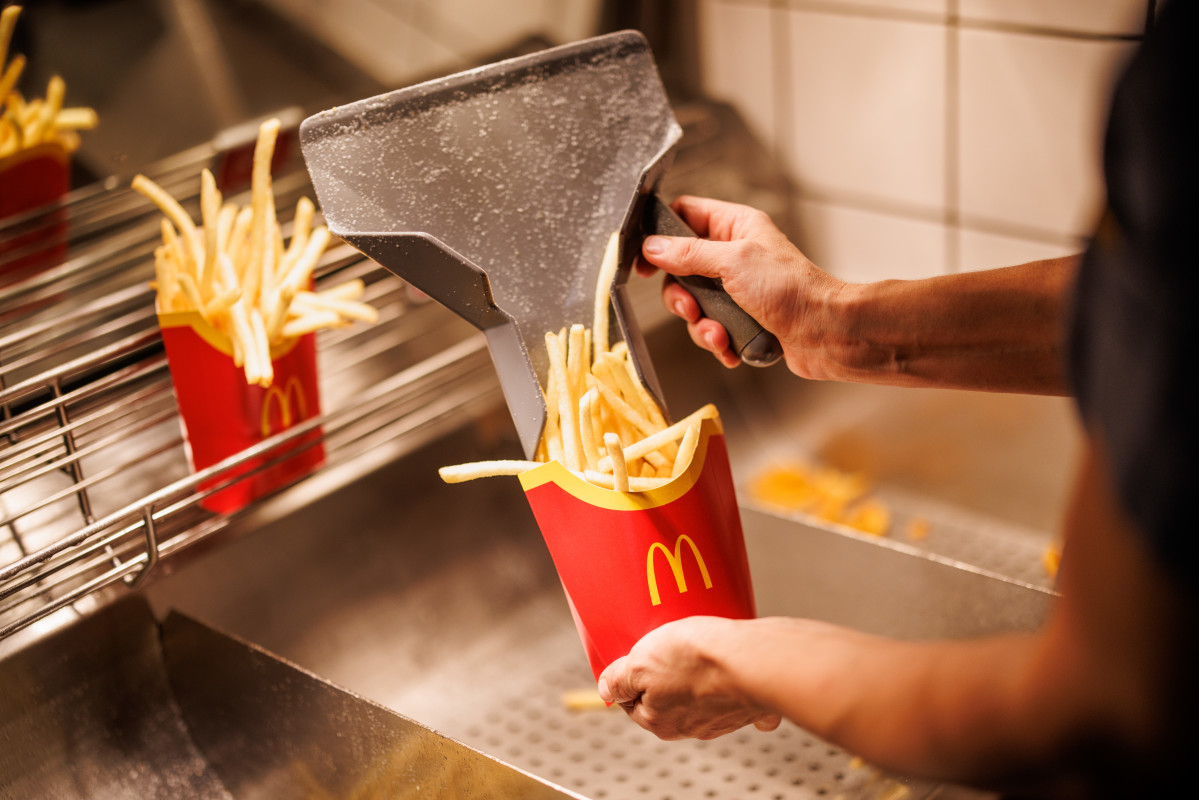
McDonald's has been known for having arguably the best-tasting french fries in the fast-food industry.
Many fast-food chains might serve better-tasting hamburgers or chicken sandwiches, but when it comes to the french fries, McDonald's is among the top preferred french fries in several taste tests.
Don't miss the move: Subscribe to TheStreet's free daily newsletter
In a September 2022 taste test, Condé Nast's Bon Appétit named the maker of McDonald's french fries, Lamb Weston, as having the standout frozen french fries among seven competing companies that included Ore-Ida, Trader Joe's, and Whole Foods Market's 365 brand.
Related: Popular grocery chain closes down in bankruptcy liquidation
Lamb Weston (LW) is a leading supplier of french fries and other frozen potato products to restaurants, including McDonald's, and retailers worldwide. The Golden Arches is Lamb Weston's top customer, accounting for 13% of the company's sales, but McDonald's has struggled with fewer customer visits and decreased sales lately, according to Source One.
Struggles at McDonald's are just the tip of the iceberg for Lamb Weston as the company reported that traffic at all fast-food restaurant chains declined by 3% in the company's first quarter of 2025, ending Aug. 25, 2024, according to its earnings call on Oct. 2
The good news for the company was that the first quarter decline was actually an improvement over its fourth quarter of 2024, when traffic at fast-food chains declined by 4%. Despite the traffic increase, Lamb Weston's sales volume did not increase because of fast-food chain promotional meal deals, the company's CEO Tom Werner said during the earnings call.
The problem with promotional meal deals, such as McDonald's limited-time McDouble $5 Meal Deal or McChicken $5 Meal Deal, is that they include an order of small fries instead of an order of medium fries, Werner said.
"We're obviously pleased with the growth in restaurant traffic, but it's important to note that many of these promotional meal deals have customers trading down from a medium fry to a small fry," Werner said in the earnings call. "So, while we benefit from improving traffic trends, consumers trading down in serving size acts as partial headwinds for our volume."
Related: Iconic outdoor retailer closes stores, no bankruptcy filing yet
While fans of McDonald's may love the hamburger chain's french fries, the bad news is that the company that makes those fries needs to implement an out-of court restructuring to cut expenses, right the ship, and strengthen its business in order keep supplying McDonald's and other restaurants with those tasty french fries. The company indicated no plans to file bankruptcy.

Lamb Weston closing french fries plant
Lamb Weston on Oct. 1 revealed its first quarter 2025 fiscal results, which included details on the company's restructuring plan that called for the french fries maker to permanently close down its Connell, Wash., manufacturing facility immediately and lay off about 375 workers, according to a statement.
More bankruptcy stories:
- Popular fast-food chain shuts locations, no bankruptcy plans yet
- Iconic retail food company closing down, no bankruptcy filing yet
- Bankruptcy filing can’t rescue popular retail food brand
"The plant Lamb Weston closed represents only 5% of the company’s production, and the closure is simply addressing a supply and demand imbalance," a Lamb Weston spokesperson told TheStreet in an email. "Lamb Weston is confident in the world’s ongoing love of fries — and in its decades-long profitable business."
The Eagle, Idaho-based potato product maker said it would also temporarily curtail certain production lines and schedules across its manufacturing network in North America, lay off about 4% of the company's global workforce, eliminate unfilled positions, and reduce the company's fiscal capital expenditures by $100 million to $750 million from the company's previous estimate of $850 million.
Lamb Weston expects the restructuring to generate about $55 million of pre-tax cost savings in fiscal 2025.
Related: Veteran fund manager sees world of pain coming for stocks







